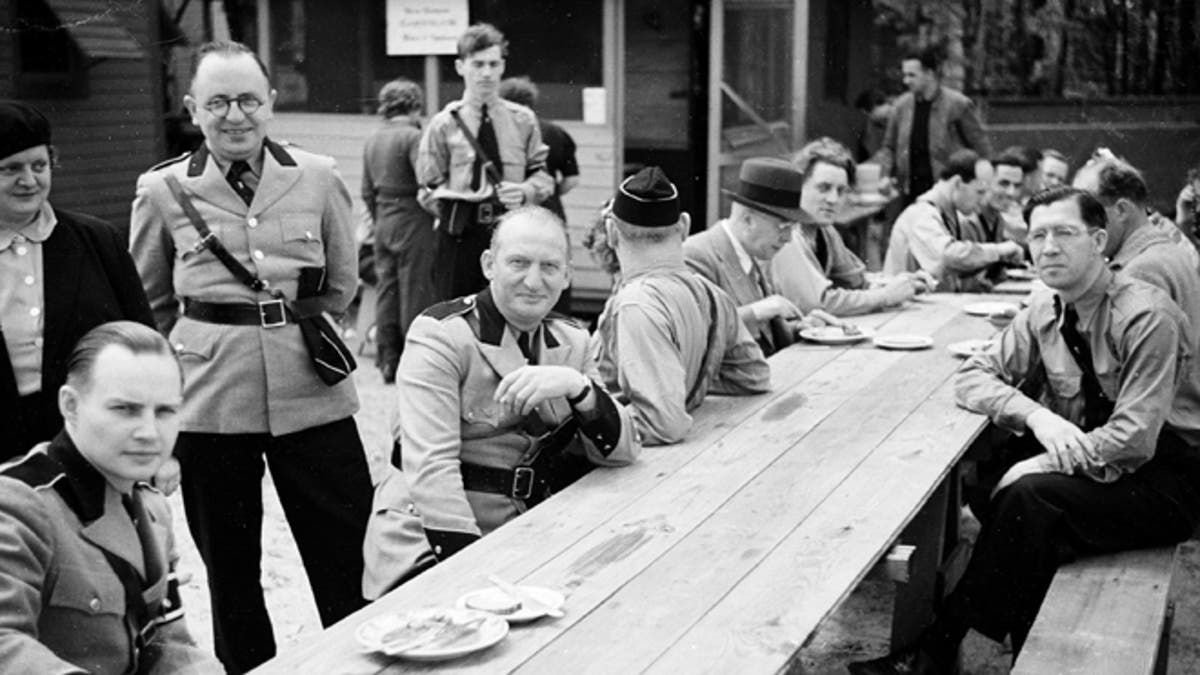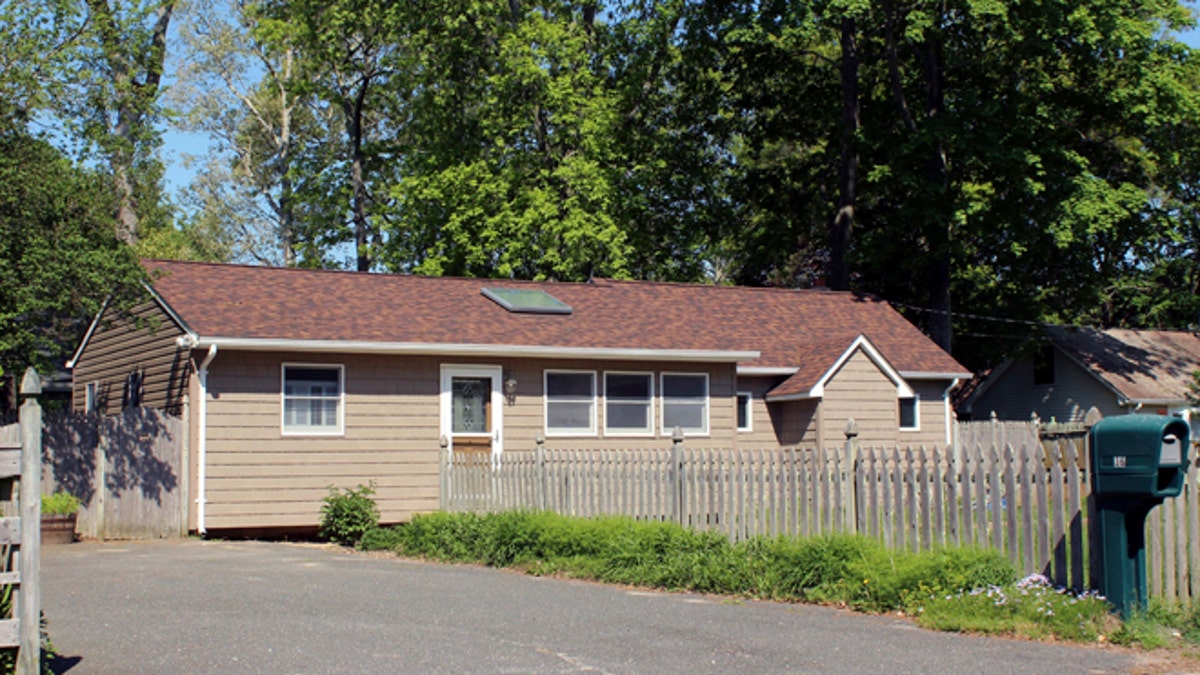
Members of the German American Bund pose for a photo at Camp Siegfried, in Yaphank, N.Y., in 1938. (New York City Municipal Archives via AP)
YAPHANK, N.Y. – An enclave of former summer bungalows, where Nazi sympathizers once proudly marched near streets named for Adolf Hitler and other Third Reich figures, is being forced to end policies that limited ownership to people of German descent.
The German American Settlement League, which once welcomed tens of thousands in the 1930s to pro-Nazi marches at Camp Siegfried on eastern Long Island, has settled an anti-discrimination case brought by New York State. The settlement calls for a change in the league's leadership and adherence to all state and federal housing laws.
Many residents in the tiny community of about 40 homes that is a small part of the rural hamlet of Yaphank declined to speak on the record, but those who did disputed their community is tainted by discrimination.
"There's a mixed bag; it's not like it was," said Fred Stern, a member of the league's board and a 40-year resident, who conceded the community was once primarily occupied by those of German descent. "It's not like whatever they're saying. If you went to every house and asked people's nationality, it wouldn't be any different than any other neighborhood."
Kaitlyn Webber told a television interviewer that her "family's always been very open. We've never had any issues with anyone discriminating against anyone up here."
The homes, which stretch down a narrow street called Private Road and surround a large grassy ballfield along Schiller Court, are a combination of small bungalows and larger suburban-type ranches. Lawns are carefully landscaped and mailboxes -- many with German surnames -- sit street-side in the curbless enclave.
News accounts recall a groundswell of Nazism in the enclave in the years before the start of World War II. Camp Siegfried, where the homes stand today, was sponsored by the German-American Bund to promote Hitler, although many at the time also voraciously expressed loyalty to the United States.
Trains from New York City's Penn Station were often jammed with people who traveled 60 miles east to Yaphank. A New York Times story from August 1938 reported 40,000 people had attended the annual German Day festivities at Camp Siegfried.
Swastikas were commonplace, including on some of the homes in the enclave at the time, said Geri Solomon, archivist at Hofstra University. "Some of the photos I have seen are kind of amazing," Solomon said.

One of the 40 homes in a community run by the German American Settlement League in Yaphank, N.Y. (AP Photo/Frank Eltman)
New York Attorney General Eric Schneiderman said a 2016 settlement of a federal lawsuit brought by two former residents, who claimed The German American Settlement League policies hindered their attempts to sell their homes, called for an end to discriminatory practices. That settlement paid the former residents, who eventually did sell and moved out of state, $175,000.
Despite that agreement, Schneiderman found the league "continued to make new membership and property re-sale within the GASL community unreasonably difficult."
The league owns the land on which the homes are situated and leases the property to homeowners, Schneiderman said. State investigators found that the league prohibited public advertisement of properties for sale. Members seeking to sell their homes could only announce a listing in person at member meetings or through internal flyers and meeting minutes circulated to the existing membership.
Stern, the league's board member, conceded that much of the real estate turnover through the years had taken place by word of mouth. There was no need to advertise a sale, he said, because "everybody knew when a house would become available." He blamed the complaints by the couple who brought the federal lawsuit on sour grapes, contending they had asked too much money for their home and that was the reason it didn't initially sell.
Stern said homes in the community range in price from about $95,000 for a small bungalow to $300,000 or more.
An attorney for the couple involved in the 2016 settlement declined to comment on the attorney general's announcement.
Schneiderman's settlement with the league calls for the immediate replacement of the organization's leadership, and requires it to regularly report compliance.
An attorney representing the league did not return emails seeking comment.





















